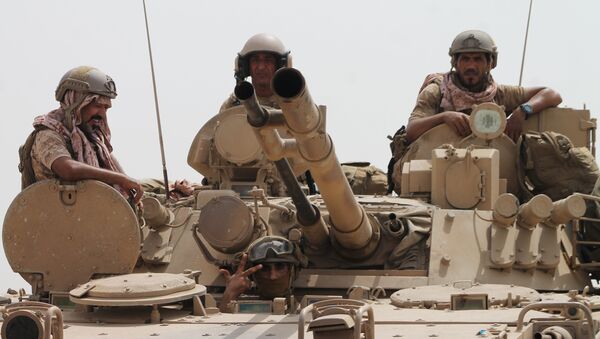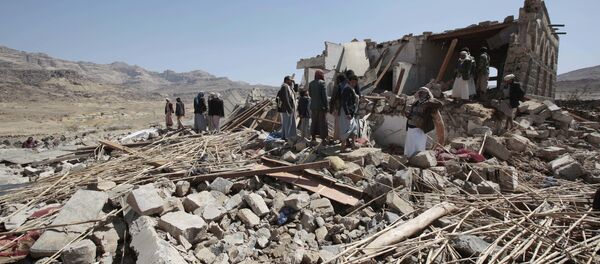The US Defense Department is considering increasing its support for Saudi Arabia and its Gulf Arab allies in their support for the government of Yemen seeking to suppress Houthi rebel forces, according to US media reports this week.
The US government no longer broadly engaged Saudi Arabia on a wide range of political, economic and cultural issues, but instead the relationship had degenerated into passive support for increasingly aggressive Riyadh policies, Freeman maintained.
"The US-Saudi relationship, which used to embrace a rich menu of political, economic, cultural, and military programs of cooperation, is basically down to intelligence and military support for independent Saudi foreign policies," he said.
President Donald Trump repeatedly criticized the alleged failure of his predecessor President Barack Obama to confront terrorism and Islamist extremists sufficiently energetically across the Middle East, but in Yemen Trump was continuing the same kinds of policies, Freeman said.
"As for the significance of stepping up support for the Saudi and Emirati-led bombing campaigns in Yemen, these are simply a continuation of previous counter-terrorism strategy," he said.
This made it far easier for extremist forces to grow rapidly and take control, he pointed out.
US counter-terrorism strategy therefore "resembles a plan to reduce hornet stings by poking at hornets' nests," Freeman explained.
Chas Freeman is a lifetime director of the Atlantic Council and served as US Deputy Chief of Mission and Chargé d’affaires at the US embassies in Beijing and Bangkok. Freeman also held several senior level positions at the Defense Department.




